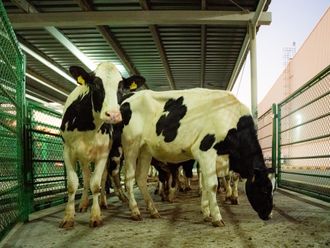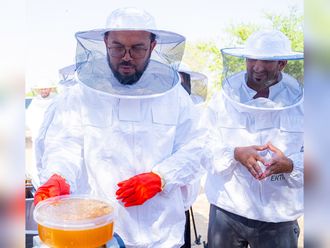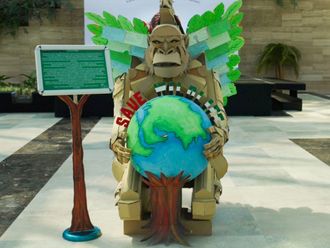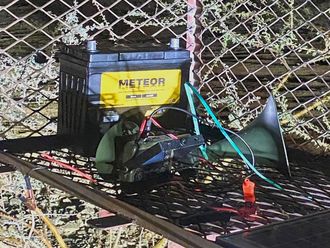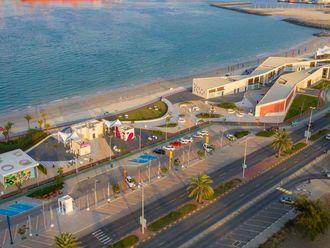Dubai: Scientists tagged the region's first wild whale shark off a Qatari oil rig last month in the hope of tracking the movements of whale sharks in the Arabian Gulf.
David Robinson, a Dubai-based marine biologist tagged the 8m long, female whale shark, named Amna on April 23. She is the first wild whale shark to be tagged in the Arabian Gulf.
Her movements will not be known for six months though, when the tag will dislodge automatically and once it pops to the surface will emit the information back to Robinson.
"This was the first whale shark we had attempted to tag for the study and luckily we were successful - and, with an 8m long female so we are delighted," Robinson told Gulf News.
Amna was tagged 90km offshore from mainland Qatar. As the founder of SharkWatch Arabia, Robinson is collecting a database of whale shark sightings as part of his PHD research with Heriot-Watt University in Dubai on the ecology of whale sharks in the Arabian Gulf and the Gulf of Oman.
"She is the biggest whale shark I have ever seen. She was more than 8 metres, the largest I had seen until Amna, was 6m in Djibouti. There were two large female sharks in the area when Amna was tagged, but she was alone and enjoying a nice swim at the surface," he said.
The findings from this study, which started in August 2010, will help to assess whale shark abundance in this region. "The Sharkwatch Arabia database has so far collected 57 confirmed sightings in just under a year with 25 positive ID patterns collected," he said.
Gulf News previously reported that sightings of newborns were confirmed offshore Pakistan and Oman, which suggests that the Northern Arabian Sea may be home to mature females that are rarely seen at other study sites throughout the world.
Sharkwatch Arabia has received support from the Qatari Ministry of Environment that will provide five satellite tags to be deployed on whale sharks in Qatari waters for the coming five years of the study.
In the UAE the Emirates Diving Association and the Emirates Natural History Group have offered their support to purchase a satellite tag for deployment on whale sharks in the region.
Over the next six weeks Robison will be traveling back to Qatar to hopefully find more whalesharks and tag them .


